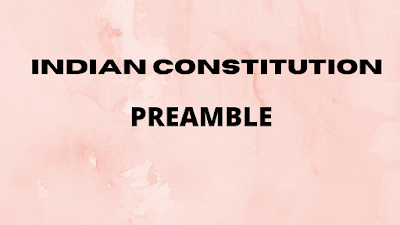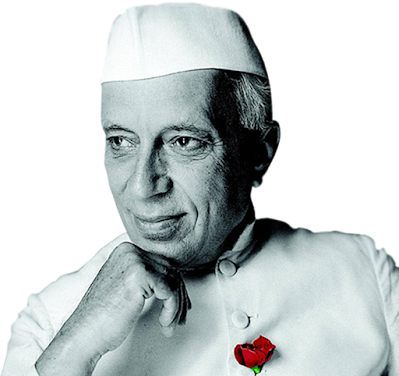Preamble-Definition
The preamble can be said as an introductory part of the Constitution or a short form of the Constitution.
Four Important Components of Preamble
The Preamble reveals four components. Firstly, according to the preamble-the source of authority of the constitution is the people of India. Secondly, the preamble declares India to be a sovereign, socialist, secular, democratic, republic. Thus we can get an idea of the nature of the Indian State. Thirdly, the sole purpose of our Constitution has been stated which is to secure to all her citizens-justice, liberty, equality, fraternity. Fourthly, the date on which the Constituent Assembly adopt our Constitution-26th November 1949.

Preamble-Indian Constitution
- Important Facts about Preamble:
- Jawaharlal Nehru proposed for the Preamble in our constitution.
- The idea of the Preamble has been borrowed from the constitution of -U.S.A.
- The language of the Preamble has been borrowed from the Constitution of -Australia.
- The Preamble was adopted by the constituent assembly on-22nd January 1947.
- The preamble has been amended only-Once.
- The Preamble was amended by the-42nd Amendment Act,1976.
- The words that were included by the 42nd Amendment Act,1976- Secular, Socialist, Integrity.

Jawaharlal Nehru
- The Supreme Court held that the Preamble was not a part of the Constitution-Berubari case(1960).
- The Supreme Court declared that the Preamble was a part of the constitution-Keshavananda Bharati case(1973).
- Important keywords in our Preamble-Sovereign, Socialist, Secular, Democratic, Republic, Justice, Liberty, Equality, Fraternity.
- Important comments about Preamble:
- "Preamble is the soul of the Constitution"--Thakurdas Bhargav.
- "Preamble is the philosophical dimension to Constitution"-B.R.Ambedkar.
- "The Preamble is the political horoscope of Indian Constitution"--K.M.Munshi.
- "The Preamble is the key-note to the Constitution"--Ernest Barker.
- "Preamble is the identity card of the Constitution"--N.A.Palkhivala.
- Keywords in Preamble:
- Sovereign: The word sovereign implies that India is not under any country's subjugation and also India is not a dependent state. It has the supreme authority to conduct its own affairs whether internally or externally. In spite of being a member of the Commonwealth of Nations, United Nations, and other international organizations, India's sovereignty is unaffected.
- Socialist: In 1955 (Avadi Session) the Congress party adopted a resolution to establish a socialistic pattern of society. In a socialist state, all production and distribution are controlled and guided by the state. But Indian brand of socialism is somewhat different and it is termed as "Democratic Socialism". In the Indian pattern of socialism, we can find the co-existence of both the public and private sectors.
- Secular: There is no official religion or State religion. Unlike Bangladesh, Pakistan, and others where States promote a particular religion, in India every religion has the same status. Thus India is not a theocratic state.
- Democracy: Democracy is of two types - Direct and Indirect. In Direct Democracy, ordinary citizens directly participate in the law-making process. In Indirect Democracy, representatives elected by the people participate in the law-making process. The Democratic pattern of India is a representative parliamentary democracy.
- Republic: The term republic indicates that the Indian head of state is elected. Thus the President of India is elected indirectly for a fixed of five years. This pattern is different from the monarchical type of democratic polity where the Head of the State enjoys a hereditary position.
- Justice: Justice in the preamble covers social, economic, and political justice. Social Justice denotes equal treatment of all citizens irrespective of caste, sex, religion, birth, and others. It also includes improvement measures taken for the backward classes, SC, ST, and others. Economic justice denotes the elimination of the existence of in-equal economic possessions. Political justice denotes the equal rights of citizens in the participation of political affairs of the State.
- Liberty: It is the absence of restraints on the activities of individuals for the upliftment of oneself and society as a whole.
- Equality: It denotes the equality of opportunity for all and the absence of privilege. It includes three dimensions-civic, political and economic equality.
- Fraternity: It means brotherhood to ensure the dignity of individuals and integrity and unity of the nation.





0 Comments
If you have any comments, contact me